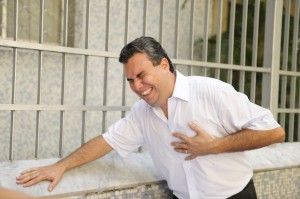 In the event of a heart attack, immediate action can save your life and minimize the damage. Although we’ve all heard stories of false alarms, you should never dismiss heart attack symptoms or try to wait and see if they pass. Do not assume that you are not having a heart attack because you are not a likely candidate for heart problems. Remember that women often suffer heart attack with no chest pain.
In the event of a heart attack, immediate action can save your life and minimize the damage. Although we’ve all heard stories of false alarms, you should never dismiss heart attack symptoms or try to wait and see if they pass. Do not assume that you are not having a heart attack because you are not a likely candidate for heart problems. Remember that women often suffer heart attack with no chest pain.
What to Do if You Suspect a Heart Attack
Do not disregard heart attack symptoms as indigestion or anxiety. Immediate medical care can save your life.
- If you suspect that you or someone else is having a heart attack, call 911 immediately.
- If you are having heart attack symptoms you should not attempt to drive.
- Stay on the phone with the 911 dispatcher until help arrives or until the dispatcher tells you they are hanging up.
- Unlock your front door while you wait for the ambulance to arrive in case you are unable to unlock it by the time they get there.
- If you are not allergic to aspirin, chew and swallow one adult aspirin (325mg) or four low-dose aspirins (81mg).
Heart Attack Symptoms
- Chest pain or discomfort
- Tightness, pressure, fullness, or squeezing feeling in the chest. It may come and go.
- Pain or discomfort that spreads to the shoulders, neck, jaw, arms, or back – with or without chest pain.
- “Heartburn” or pain that extends downward from the chest into the abdomen.
- Shortness of breath.
- Anxiety or a sense of impending doom.
- Sweating, often with cold and clammy skin.
- Lightheadedness, dizziness, or feeling like you might pass out.
- Unexplained fatigue.
- Nausea and/or vomiting.















